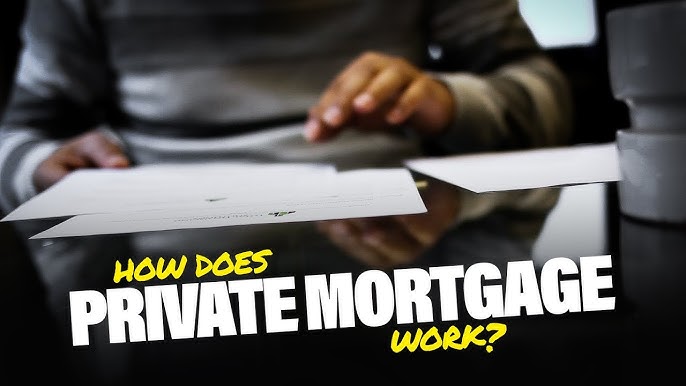Everything About Mortgage Lending: Key Insights for Homebuyers and Investors
Mortgage lending is an intricate landscape, supplying numerous lending kinds tailored to diverse borrower demands. Recognizing the subtleties of standard, FHA, VA, and USDA fundings can substantially affect homebuyers and capitalists alike. In addition, credit scores play an essential duty in protecting beneficial interest rates. As the home loan application procedure unfolds, a number of key aspects come right into play, influencing both authorization and terms. What are the necessary actions and strategies to navigate this complex procedure efficiently?
Understanding Different Kinds of Mortgage Loans
Understanding the various sorts of mortgage loans is essential for possible property buyers, as each choice satisfies various economic circumstances and needs. Standard lendings, normally used by personal loan providers, require a greater debt rating and usually entail a down payment of at the very least 20%. On the other hand, FHA financings are government-backed and designed for first-time purchasers, allowing lower credit history and smaller deposits. VA fundings, available to experts and active army members, provide favorable terms and no down payment requirement. Furthermore, USDA lendings support country property buyers with reduced to modest revenues, supplying absolutely no deposit alternatives. Fixed-rate mortgages maintain consistent month-to-month settlements over the lending term, while adjustable-rate home loans begin with lower prices that can change. By recognizing these differences, homebuyers can make enlightened choices tailored to their economic conditions and long-lasting goals. Selecting the ideal mortgage kind is a significant action in the home-buying procedure.
The Importance of Credit Rating in Home Loan Approval
Credit history play a necessary function in the home mortgage approval process, acting as an essential indication of a debtor's creditworthiness. A greater credit report can cause extra positive rate of interest prices, substantially affecting the general price of a home mortgage. Recognizing the fundamentals of credit rating ratings and exploring ways to enhance them can greatly benefit prospective homebuyers.

Credit Rating Basics
A solid credit rating plays a necessary duty in the mortgage authorization procedure, affecting lenders' perceptions of a debtor's reliability. Credit rating, typically varying from 300 to 850, mirror an individual's credit reliability based upon their economic background, including payment background, debt use, length of credit rating, kinds of credit score accounts, and recent queries. Lenders assess these scores to assess the danger related to providing cash. Generally, a higher credit scores rating suggests lower threat, resulting in a smoother approval procedure. Property buyers and financiers should routinely examine their credit report reports for mistakes and take steps to boost their scores, such as paying costs on time and decreasing arrearages. A strong credit report is an essential property in protecting beneficial home mortgage terms.
Effect On Rate Of Interest
Rate of interest prices on home loans are considerably influenced by the debtor's credit history rating, which acts as an essential sign of economic integrity. Lenders evaluate credit history to review the danger connected with extending a finance. Private Mortgage Lenders Savannah GA. Higher credit report ratings usually lead to lower rates of interest, as they suggest that debtors are most likely to settle their financial obligations. On the other hand, reduced credit rating might lead to greater prices, mirroring the raised danger perceived by lenders. This relationship highlights the significance of keeping a strong credit score account for possible consumers. Comprehending how debt ratings influence rate of interest can equip property buyers and investors to make educated choices, potentially saving them significant amounts over the life of their home mortgage

Improving Your Credit Rating
Homebuyers keen on securing desirable home mortgage terms should recognize the crucial duty of credit rating scores in the authorization process. A higher credit history often brings about lower rate of interest, which can significantly minimize the general price of a home mortgage. Lenders analyze credit history to gauge an applicant's financial dependability, influencing their decision to authorize or refute a home loan application. To enhance their ratings, possible customers need to concentrate on timely bill repayments, lowering outstanding financial debts, and avoiding new credit report inquiries. Consistently reviewing credit reports for errors can also aid preserve precision. By taking these actions, property buyers can boost their creditworthiness, inevitably enhancing their opportunities of obtaining a home loan with desirable problems.
Secret Aspects Influencing Rates Of Interest
Exactly how do different economic elements form the landscape of home mortgage rate of interest prices? A number of crucial elements play an important role in identifying these prices. The Federal Get's monetary policy greatly influences rates of interest; when the Fed elevates or lowers benchmark rates, home loan rates generally follow match. Furthermore, inflation trends influence the purchasing power of consumers, leading lending institutions to readjust prices accordingly. Financial development indications, such as employment rates and GDP development, additionally influence rates of interest; a durable economy commonly results in higher prices because over at this website of increased need for finances. The bond market serves as an essential criteria; when bond returns increase, mortgage prices often tend to increase. Ultimately, private borrower factors, including credit report rating and debt-to-income proportion, can affect the specific price provided (Private Mortgage Lenders Savannah GA). Understanding these dynamics helps property buyers and capitalists make educated choices in the home mortgage market
The Home Mortgage Application Process Explained
What actions are included in protecting a mortgage? The mortgage application procedure begins with the debtor event essential documents, such as revenue declarations, income tax return, and credit report. Next, the borrower chooses a lending institution and sends a formal application, supplying all called for details. The loan provider after that conducts a credit check and analyzes the customer's economic stability.Following this, the lending institution will certainly perform an evaluation of the residential property to identify its market price. As soon as the home is assessed, the lender assesses the application, including the customer's economic history and the evaluation results, to decide whether to accept or deny the financing. If accepted, the borrower receives a car loan quote detailing the terms and prices associated with the mortgage.Finally, the debtor reviews and indicators the closing papers, officially safeguarding the home mortgage. Understanding this process is important for possible property owners as they browse the intricacies of mortgage borrowing.
Tips for First-Time Homebuyers
Newbie homebuyers deal with a distinct set of challenges when getting in the actual estate market. Recognizing the different kinds of mortgages available and efficiently budgeting for their acquisition are necessary action in the homebuying trip - Private Mortgage Lenders Savannah GA. By equipping themselves with this knowledge, they can make informed decisions that line up with their financial objectives
Recognizing Mortgage Kinds
Steering the globe of home loan kinds can be daunting for those getting in the housing market for the very first time. Comprehending the numerous alternatives is essential for newbie property buyers. Fixed-rate home mortgages use foreseeable month-to-month settlements, making budgeting easier. On the other hand, variable-rate mortgages (ARMs) usually begin with reduced prices that can rise and fall gradually, which may be attractive yet carries risks. Government-backed fundings, such as FHA and VA lendings, provide extra support for eligible purchasers, typically requiring lower deposits. In addition, newbie property buyers may discover standard loans that stick to specific requirements. Each home loan kind has one-of-a-kind benefits and downsides, so it is crucial for newcomers to study extensively and analyze their long-term financial objectives prior to making a choice.
Budgeting for Your Acquisition
When starting on the journey of homeownership, reliable budgeting is crucial for possible purchasers to ensure economic stability throughout the procedure. First-time buyers ought to start by assessing their revenue and expenditures, ensuring they assign funds for a deposit, closing costs, and moving expenditures. Developing a regular monthly budget plan that includes home mortgage learn this here now payments, real estate tax, insurance policy, and maintenance expenses is essential. Buyers must also factor in prospective fluctuations in rates of interest and market conditions. Producing a reserve can provide a security web for unexpected expenditures. Furthermore, customers might benefit from speaking with economic advisors or utilizing on the internet budgeting devices to obtain a more clear understanding of their financial situation. Cautious preparation inevitably causes notified choices and a successful home acquisition.
Financing Options genuine Estate Investors
What funding options are offered to real estate capitalists aiming to increase their profiles? Investors can check out a number of avenues. Traditional home loans continue to be a popular option, usually needing a bigger deposit and good credit. Investors may take into consideration hard cash fundings, which are short-term finances secured by genuine estate, providing quick access to funding yet at greater passion rates.Another choice is exclusive funding, where investors can borrow from good friends or family members, commonly with even more versatile terms. For those looking for to finance numerous residential or commercial properties, portfolio loans might be suitable, allowing numerous residential or commercial properties to be bundled under one mortgage.Additionally, real estate crowdfunding systems have actually emerged, enabling capitalists to merge sources with others for home investments. Leveraging equity in existing residential or commercial properties through cash-out refinancing can provide funds for brand-new financial investments. Each option has its benefits and threats, needing careful consideration based on individual financier goals.
Frequently Asked Concerns
What Are the Regular Closing Costs Related To a Mortgage?
Closing costs generally consist of evaluation costs, title insurance policy, attorney costs, and origination charges. These expenses generally vary from 2% to 5% of the funding amount, affecting the general economic commitment for the purchaser.
The length of time Does It Require To Close on a Mortgage?
The duration to shut on a home mortgage normally varies from 30 to 45 days, relying on numerous aspects, including loan provider efficiency, paperwork efficiency, and market conditions, which can substantially influence the general timeline.

Can I Re-finance My Home Loan Later On?
Yes, refinancing a mortgage later is possible. House owners usually seek re-financing to safeguard reduced rate of interest, minimize regular monthly payments, or access home equity. However, they need to take into consideration connected charges and their financial scenario before proceeding.

What Takes place if I Miss a Home Loan Payment?
If a mortgage settlement is missed, the consumer may encounter late fees, prospective damages to their credit report, and possible repossession process. Lenders generally supply grace durations, yet consistent missed out on payments can cause significant consequences.
Exist Penalties for Settling My Home Mortgage Early?
Several loan providers enforce early repayment penalties for very early home mortgage payoff, navigate to this site potentially costing consumers extra charges. Terms differ considerably among lending institutions, so it is important for customers to examine their home loan contracts prior to making very early repayments.